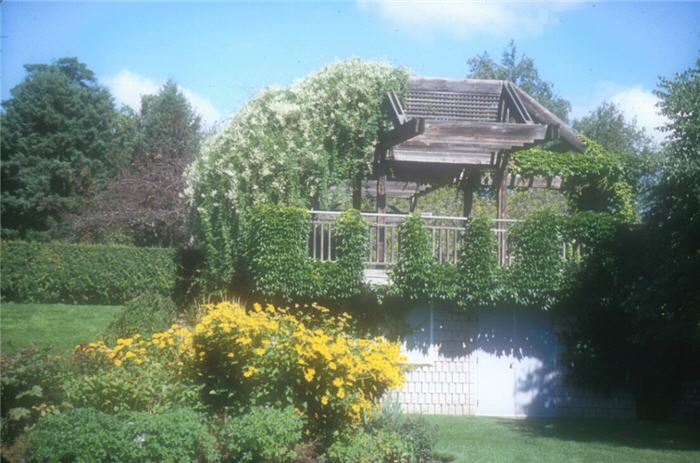| Botanical Name: Fallopia baldschuanica | |
| Common Name: Silver Lace Vine, Lace Vine |

-
Anatomy
-
Culture
-
Design
Plant Type
Perennial, Vine
Height Range
12-25', 25-40'
Flower Color
White
Flower Season
Summer
Leaf Color
Green
Bark Color
Brown
Fruit Color
n/a
Fruit Season
n/a
Sun
Full, Half
Water
Medium
Growth Rate
Fast
Soil Type
Sandy, Clay, Loam, Rocky, Unparticular
Soil Condition
Average, Rich, Poor, Well-drained, Dry
Soil pH
Acid, Neutral, Basic
Adverse Factors
Invasive
Design Styles
English Cottage
Accenting Features
Fragrance, Showy Flowers
Seasonal Interest
Summer
Location Uses
Background, Walls / Fences
Special Uses
Screen
Attracts Wildlife
n/a
Information by: Stephanie Duer
Photographer:
Photographer:
-
Description
-
Notes
Silver lace vine is a vigorous, adaptable, fast-growing, deciduous, twining vine that typically grows 25 to 35 feet (12 to 15 feet in one year). Leaves emerge tinged with red but mature to green. Masses of small, fragrant, white flowers cover the vine from mid-summer until fall. Needs support to get started, but it is very capable of covering a fence, a small building, or anything else. Synonymous with Polygonum aubertii and Polygonum baldschuanicum.
Though adaptive, is happiest in well drained soils in full sun to part shade. This is a somewhat weedy vine that spreads quickly by rhizomes. May be pruned back each year in late winter to early spring. To renovate, prune back in late winter to 1 to 3 feet from the ground. To keep within bounds, trim off excess growth as needed throughout the year.